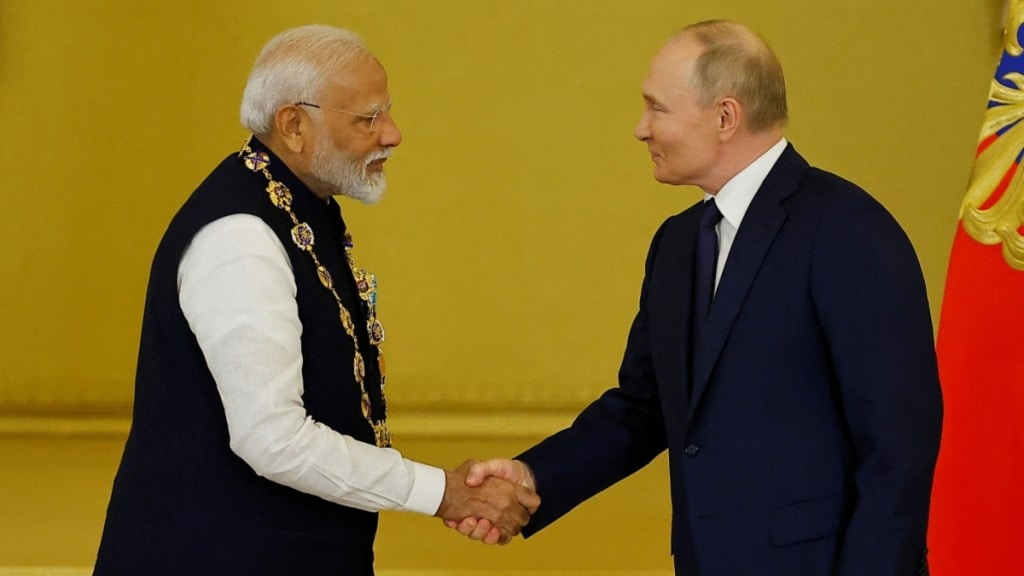Prime Minister Narendra Modi’s state visit to Russia, at the invitation of President Vladimir Putin, has significantly strengthened the bilateral relationship between the two nations. During the visit, Modi accepted Putin’s invitation to attend the upcoming BRICS summit in Kazan, marking a key moment in the deepening strategic partnership between India and Russia. The leaders engaged in comprehensive discussions, covering a broad spectrum of bilateral issues and global challenges, reaffirming their commitment to enhanced cooperation across multiple sectors.
Russian Foreign Minister Sergey Lavrov highlighted the positive outcomes of the summit, underscoring the “particularly privileged strategic partnership” between Russia and India. This partnership, deeply rooted in historical ties, was further strengthened during Modi’s visit, as the leaders outlined ambitious plans for cooperation across various spheres.
Acceptance of BRICS Summit Invitation
A key highlight of the summit was Modi’s acceptance of Putin’s invitation to attend the BRICS summit in Kazan in October 2024. This acceptance signals India’s continued commitment to deepening its ties with Russia and other BRICS nations. Lavrov emphasized that during the talks, both leaders reviewed the current international situation, particularly in the context of Russia’s BRICS chairmanship. Modi expressed his support for the programme Russia is implementing as the chair.
Expanding Bilateral Cooperation
The summit also saw detailed discussions on expanding bilateral cooperation. The leaders reviewed a comprehensive range of issues, including economic ties, political dialogue, humanitarian efforts, cultural exchanges, sports, education, and military cooperation. Modi’s reception of the Order of St. Andrew the Apostle from Putin further solidified the commitment to these areas.
Lavrov pointed out that the Soviet Union was one of the first to recognize India as an independent nation, highlighting the deep historical ties between the two countries. The commitment to fostering these ties was evident as both leaders outlined key areas of interaction and underscored their dedication to deepening cooperation across all spheres.
International Cooperation and Global Issues
Beyond bilateral issues, Modi and Putin exchanged views on several international topics. They discussed the Shanghai Cooperation Organisation (SCO), reiterating its importance for both Moscow and New Delhi. Cooperation within the G20 was also a significant topic. Lavrov noted how India’s presidency in 2023, supported by Russia, China, and other Global Majority countries, prevented the “Ukrainianisation” of the G20 agenda, which was being pushed by the United States and its allies. The New Delhi Declaration, adopted during India’s presidency, provided a balanced geopolitical overview and emphasized the need to address global economic and monetary issues without bias.
Support for India’s UN Security Council Candidacy
The discussions also touched on cooperation within the United Nations. Russia reiterated its support for India’s candidacy for a permanent seat on the UN Security Council, a move that would require near-unanimous approval from the UN General Assembly. Lavrov emphasized that Russia’s position in favor of India, Brazil, and the African group remains unchanged. He criticized the over-representation of Western countries in the Security Council and opposed granting them additional seats.

